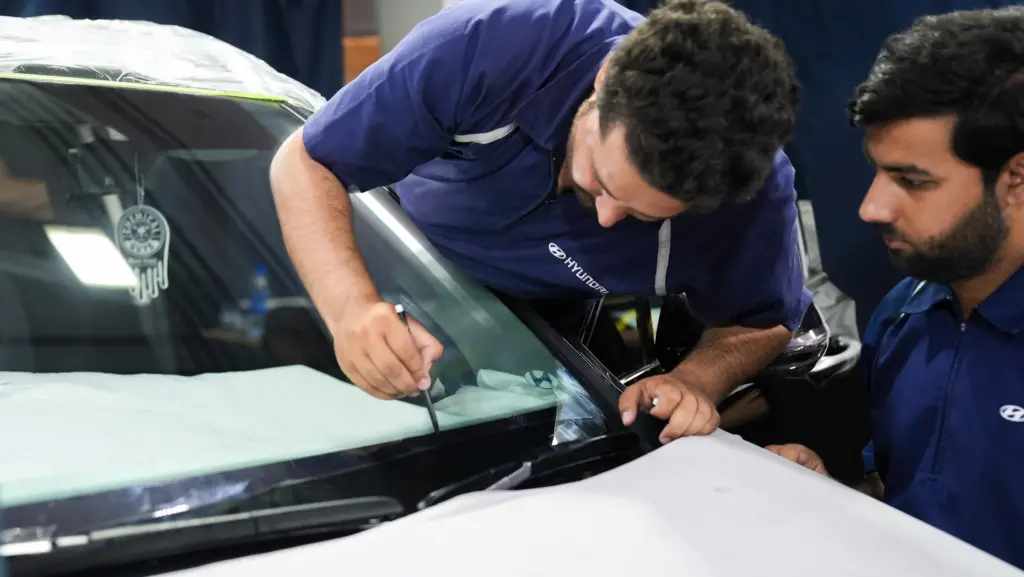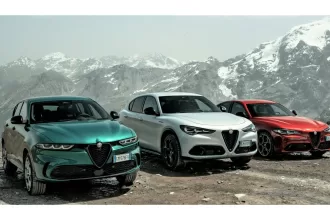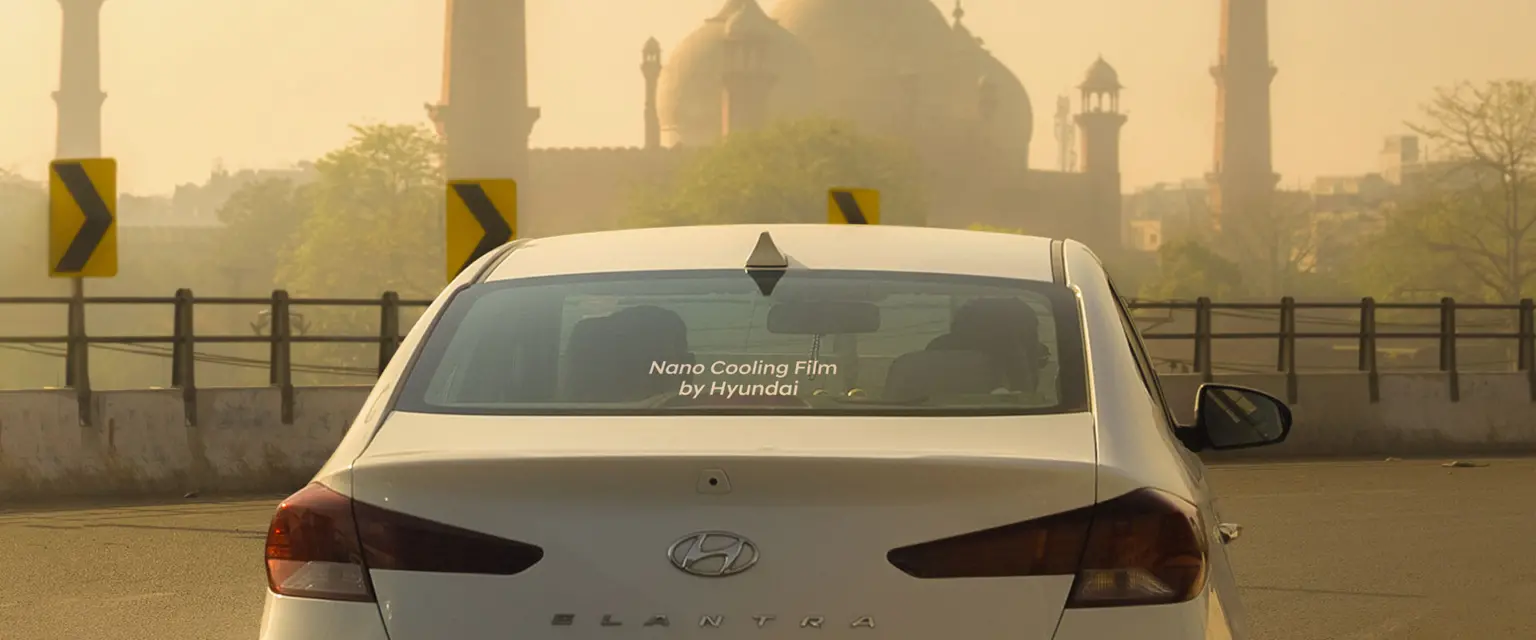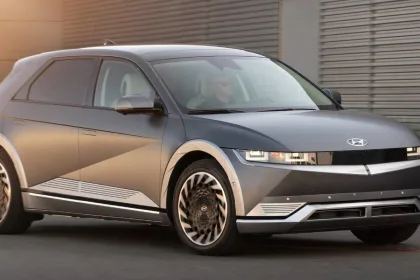The Hyundai Motor Company has launched the world’s first application of a Nano Cooling Film, a revolutionary vehicle window tint that offers a significant improvement in interior cooling performance compared to conventional tint films.
The Nano Cooling Film maximizes heat dissipation by incorporating a nanostructure with excellent heat transfer characteristics. This innovative transparent film is expected to be more effective in hot and dry climates, as the cooling effect is optimized at higher outdoor temperatures.
To prove its effectiveness in a real-world application, the company today launched a “Made Cooler by Hyundai” campaign, applying the film to 70 customer vehicles in Lahore, Pakistan, where daily summer temperatures can top 50°C.

The Nano Cooling Film surpasses conventional tint films in its ability to block heat while maintaining high transparency and unobstructed vision. Unlike dark tint shades that can negatively impact night-time visibility and release absorbed heat into the vehicle, the Nano Cooling Film effectively blocks external heat energy and emits internal radiant heat to the outside. This is achieved through its unique composition of three layers that selectively block or emit specific wavelengths of solar heat.
The film’s outer layer radiates heat at mid-infrared wavelengths from the interior of the vehicle to the exterior, while the inner two layers reflect incoming heat at near-infrared wavelengths, reducing the total amount of heat that reaches the inside of the vehicle.
Moreover, the Nano Cooling Film can be applied in tandem with conventional tint films in countries where car tints are less regulated. If regular tint films are added on the back side of the Nano Cooling Film, the overall heat reflection and radiation are enhanced, resulting in greater cooling effects.
Hyundai Motor first revealed the Nano Cooling Film at the Nano Tech Day media event in July 2023, exhibiting its innovations in material technology. At that event, the company announced its plan to further develop advanced material technologies before the development of parts or systems and to apply them to actual mobility products.
Hyundai Motor’s experiments with the Nano Cooling Film have confirmed its effectiveness. In a study comparing the interior temperature of vehicles during daylight hours in the summer, it was found that the Nano Cooling Film reduced the temperature near the driver’s head by up to 10,98°C compared to conventional tint film, and up to 12,33°C compared to the same vehicle without window tinting. Additionally, the crash pad temperature of the vehicle with the Nano Cooling Film was 15.38°C lower than the same vehicle with conventional tinting, and 22°C lower than the same vehicle without tinting.
‘Made Cooler by Hyundai’ campaign launches in Pakistan
Hyundai Motor this month applied its exclusive Nano Cooling Film on 70 customer vehicles in Lahore, Pakistan, as part of the “Made Cooler by Hyundai” campaign. Hyundai Motor selected the Lahore market to introduce its transparent film, as attaching tinted film to vehicle windows is prohibited for security reasons in Lahore. The Nano Cooling Film reduces the interior temperature by over 10°C without darkening the windows and complies with local laws.
This innovative solution aims to provide relief to local drivers who face the challenges of scorching summer heat exceeding 50°C and high energy costs. The application of the film is offered at no cost to these customers, demonstrating the company’s commitment to improving the driving experience in hot climates.
The campaign aims to show that the Nano Cooling Film effectively controls the vehicle’s interior temperature to greatly improve driving comfort and reduce energy consumption caused by excessive use of air conditioning.
Hyundai Motor plans to use empirical data from this pilot campaign to ensure quality and enter mass production of the film in the future.














